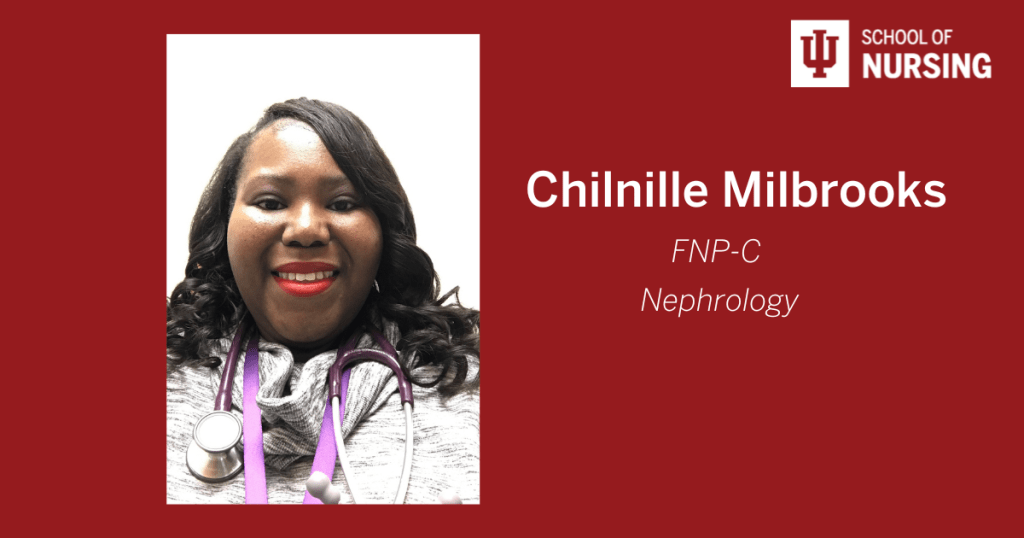Each September, Nephrology Nurses Week honors nurses for their lifesaving work caring for patients with kidney disease, which currently affects one in seven people across the United States.
One of the most diverse nursing specialties practiced today, nephrology nurses care for patients of all ages and practice in many different settings, such as dialysis clinics, hospitals, home settings, long-term care facilities, transitional care units, nephrology clinics and transplant programs.
"In acute settings, patients are often critically ill, and care is fast-paced and challenging," explains Chilnille Milbrooks, FNP-C, a nephrology nurse practitioner with Indiana University Health. "In outpatient settings, nephrology nurses are an integral part of a multidisciplinary team that cares for patients with complex needs."
Additionally, Milbrooks, who earned her graduate degree from IU School of Nursing at IUPUI, says nephrology nurses fill many roles, such as advocate, educator, consultant, care coordinator and direct caregiver.
"As a result, they can have a positive impact on the quality of patients' lives," she says.
Nephrology nurses are also in high demand. Kidney failure, also known as End-Stage Renal Disease or ESRD, has tripled in the last 20 years and is only becoming more prevalent across the United States.
Like many Americans, Milbrooks has a personal connection to the disease.
"I have a family history of family members with chronic kidney disease (CKD) and ESRD, some of whom have been on dialysis," says Milbrooks. "CKD and ESRD affect the Black community at a huge rate, so I thought this was a way for me to step in and help be an advocate for my community."
According to the National Kidney Foundation, Black Americans are three to four times as likely as white Americans to develop kidney failure, with diabetes and high blood pressure among the two leading causes of ESRD among this segment of the population. Access to healthcare can also be a factor.
"I want to be a face that patients recognize and be able to show empathy by relying on my personal experiences with my own family members," says Milbrooks. "That helps build a bond and a trust with my patients because they feel like I truly understand what they're going through."
I want to be a face that patients recognize and be able to show empathy by relying on my personal experiences with my own family members.”
Milbrooks says building bonds is central to her work as a nephrology nurse.
"Getting to know my patients on a personal level and forming bonds that let me know that I'm truly making a difference in their lives are the most fulfilling aspects of my career."
There are many ways to thank nephrology nurses for their skill and compassion during Nephrology Nurses Week and year-round. Milbrooks says the simplest gestures can often be the most meaningful.
"Just let them know how much you appreciate the work they are doing," she says.
To learn more about Nephrology Nurses Week and the tremendous impact these nurses have on patients and their families, visit annanurse.org.


